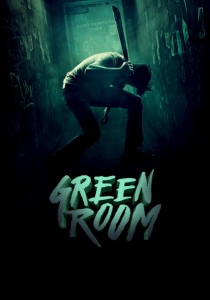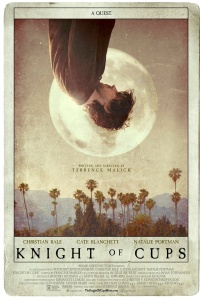 “Ooh, a conspiracy,” says one of the members of the trapped and tortured punk band in “Green Room.” These kids are so punk that even when they’re being slaughtered one by one, they still have room for sarcasm. But it’s not a conspiracy, “just a clusterfuck.”
“Ooh, a conspiracy,” says one of the members of the trapped and tortured punk band in “Green Room.” These kids are so punk that even when they’re being slaughtered one by one, they still have room for sarcasm. But it’s not a conspiracy, “just a clusterfuck.”
“Green Room,” the second film from “Blue Ruin” director Jeremy Saulnier, masterfully arranges conflict, depth and intrigue within a gory and disturbing horror thriller, but it never spirals out of control into something larger than a one-room drama. The movie’s modest proportions make the danger and bloodshed flow all the heavier.
The four members of a Pacific Northwest hardcore punk band called Ain’t Rights are truly living on the edge. The film’s first shots show they’ve quite literally gone offroad, having fallen asleep at the wheel and drifted into a corn field with the engine still running. To get by they’ve mastered siphoning gas out of cars, giving them just enough for beer money and to get to a gig in a college town.
Saulnier has an erratic, invigorating pacing, with the band putting the needle down on a riotous record before immediately cutting away to the hazy morning after. They say in an interview with a local student journalist that they don’t believe in being online, and everything in their life is so makeshift and DIY, they reduce themselves to performing at a Mexican restaurant for nothing but their meals. The film is rife with the language of the punk lifestyle and feels perfectly plugged into the Americana surroundings.
But after that first gig is a bust, they head deeper into the Pacific Northwest backwoods home to a gang of neo-Nazi skinheads. Rather than abide by the rules, they open their set with a song telling everyone to fuck off. A hardened audience member gives them the death stare and spits beer on stage. Their fate is sealed.
The band’s guitarist and arguably most timid, Pat (Anton Yelchin), runs back into the green room to grab his phone, only to witness a woman who has been stabbed to death by the headlining act. The bar’s caretaker (Macon Blair of “Blue Ruin”) locks them and the woman’s friend Amber (Imogen Poots) all into the green room until the police arrive, but really buying time for the skinhead leader Darcy (Patrick Stewart) to calculate a plan to kill them and clean up the mess.
Saulnier manages to keep “Green Room’s” numerous moving parts all bottled up in that tiny room. The slow-burn tension plays out with Stewart’s calming, yet authoritative voice calling to them from the other side of the green room’s locked door. A band member has the bar’s bodyguard in a chokehold on the floor, and with no way out it’s only a matter of time before they allow their punk energy to explode.
Saulnier’s last film “Blue Ruin” was about a would-be-murderer who found himself way over his head, and “Green Room” puts these youngsters in a similarly grizzly spot. On stage they’re hardcore, but Saulnier tests their personalities and their resolve with brutal intensity. And while it would be tempting to label the film as merely a horror survival story and exploitation film, these characters have human vulnerabilities and are forced to make tough choices. Even the skinheads aren’t total monsters. One is forced to put his attack dog to sleep after the band has its way, and in a weirdly touching image, the dog curls up beside its owner to die.
What additionally sets “Green Room” apart from “Blue Ruin” however is how Saulnier has evolved as a filmmaker. That film was as scrappy and do-it-yourself indie as its protagonist. “Green Room” is taut and polished. He escalates the hysterics and violence in convincing ways, starting with Pat’s arm getting mutilated entirely off screen. As the band is forced to retreat back to the green room to still be trapped, their psychological horror goes through the roof, and the bloodshed is there to match it.
“Green Room” is one of the finest movies of the year. It’s disturbing, thrilling and stylish but doesn’t sacrifice its humanity. Now that’s hardcore.
4 stars
 In ways that are both enlightening and maddening, Terrence Malick continues to demonstrate in his latest film “Knight of Cups” a remarkable eye for visuals and creative ways of playing with depth. Since “
In ways that are both enlightening and maddening, Terrence Malick continues to demonstrate in his latest film “Knight of Cups” a remarkable eye for visuals and creative ways of playing with depth. Since “